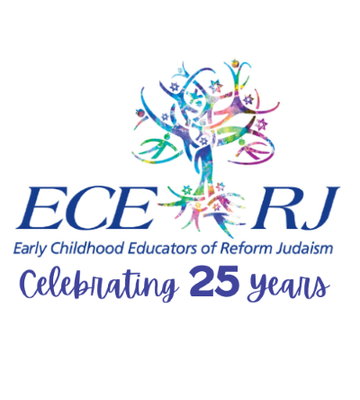It is astonishing to me that “on average, women working full time in the United States are paid just 80 percent of what men in comparable positions are paid. Sadly, the gender pay gap also exists within Jewish institutions at similar rates. Salary data from Reform Movement professional associations reveals that Reform institutions are not immune from these societal problems.
The issue of pay equity is often defined as a woman’s issue, yet we know it to be an issue of human rights and social justice. By engaging the entire Reform Movement around this issue, we are reinforcing the message that economic justice for women is at the core of our fundamental Jewish values.” https://reformpayequity.org/about/
In my role as Executive Director of ECE-RJ, I often work with Directors during contract negotiations as well as guide congregations throughout the placement and on-boarding process.
The reform movement has been working on the Reform Pay Equity Initiative and Jennie Rubin, Immediate Past President, has been the ECE-RJ representative on the task force. Here is what Jennie has to say about her work on this issue:
Over the last 2.5 years, I have been ECE-RJ’s representative to the Reform Pay Equity Initiative (RPEI).
Powerfully lead by Rabbi Mary Zamore, Executive Director of the Women’s Rabbinic Network (WRN), and Rabbi Marla Feldman, Executive Director of Women of Reform Judaism (WRJ), organizational representatives from every arm of the Reform Movement came together to address the pay inequity that exists between genders.
The research done initially, in 2016, illustrated that, in general, women in the Reform movement were making $.83 to the $1.00, compared to their male counterparts. This was slightly better than the national average but still disconcerting.
Because our professional organization is over 99% female, early childhood educators’ salaries could not be factored into the study. There weren’t enough men in the profession to determine inequity based upon gender. However, the information ECE-RJ provided is consistent with what national survey studies have indicated. Our profession is drastically underpaid. It is even more apparent when compared with other educational colleagues who work within Reform institutions. Our teachers usually possess specialized training but are compensated less because of the age group they work with.
Jeneen Interlandi said it perfectly in the title of her NY Times Article, “Why Are Our Most important Teachers Paid the Least?”
Research continues to validate how important our work is for both the secular and Jewish future. Diana Granger stated, in an article for eJewish Philanthropy “If we believe in Judaism as an ethical guide, promoting decency and dignity… we have to bridge the massive gap between the real and ideal…especially...when we examine the grim reality of how we (under) compensate and (de) value Jewish early childhood educators.”
As we continue our journey toward equitable compensation, including pension, benefits, and professional development for full-time employees, the incredible resources created by The Reform Pay Equity Initiative are available for all of us to reference at www.reformpayequity.org .
Become familiar with the resources. Share this website with others within your organization.
If you are the employer, make strides where you can. Remember that ECE-RJ is one of your most valuable resources. We are continuing to strengthen the mindset regarding the value of our work. Let’s work together to make sure that we are compensated accordingly.


